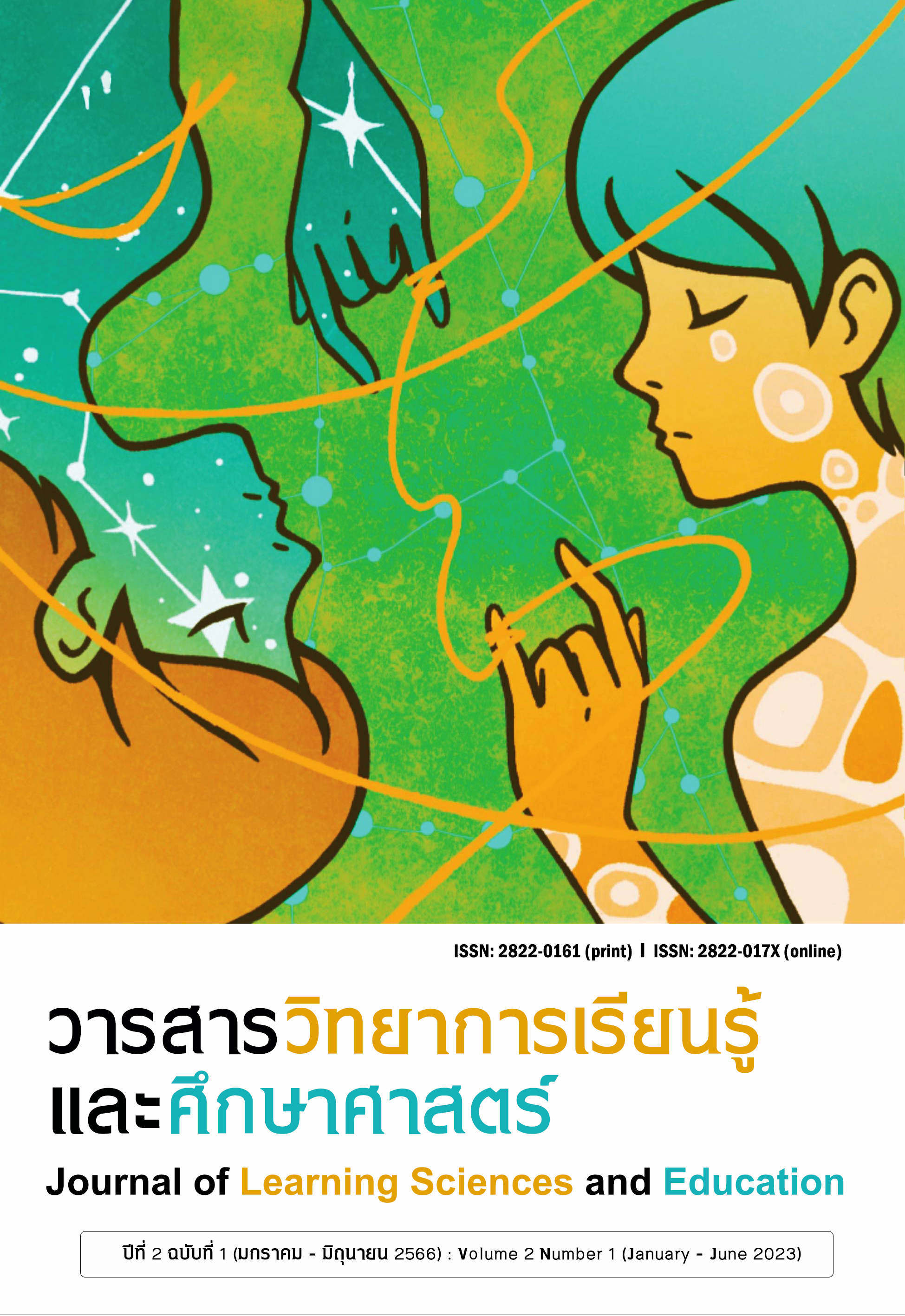ข้อคิดว่าด้วยความเป็นครูแห่งยุคสมัย
Main Article Content
บทคัดย่อ
บทความนี้ เป็นปาฐกถานำในการสัมมนาทางวิชาการว่าด้วย “ครูในฐานะนักขับเคลื่อนการเรียนรู้บนความแตกต่างหลากหลาย” ผู้เขียนจึงมุ่งตอบโจทย์ที่ว่าด้วยการเรียนรู้ โดยพยายามแสวงหาหลักการและหลักวิชาจากการวิเคราะห์ตัวอย่างอันหลากหลายที่เป็นรูปธรรม เริ่มต้นด้วยความเชี่ยวชาญเฉพาะด้านในสาขาวรรณคดีศึกษา ผู้เขียนชี้ให้เห็นว่าประสบการณ์ไทยกับตะวันตกพ้องกันในด้านความสำนึกเชิงประวัติศาสตร์ ในขณะเดียวกันครูในยุคปัจจุบันจำเป็นต้องเข้าใจบริบททางวัฒนธรรม สังคม เศรษฐกิจ และการเมืองในระดับนานาชาติที่มีความหลากหลายและซับซ้อน รวมทั้งต้องติดตามความเปลี่ยนแปลงที่ถาโถมเข้ามาอย่างรวดเร็วด้วยอิทธิพลของโลกเสมือน แม้ว่าโดยทั่วไปสังคมร่วมสมัยอาจไม่ให้ความหวังมากนักในระดับมหภาค แต่ความลึกซึ้งทางวัฒนธรรมที่แฝงอยู่ในชีวิตของคนธรรมดาสามัญอาจให้แสงสว่างแก่เราได้ ถ้าผู้ที่อยู่ในระบบการศึกษาตั้งสติให้มั่นบนรากฐานของการตื่นรู้ทางจริยธรรม ในท้ายที่สุดแล้วการเรียนรู้ย่อมดำเนินไปในรูปของจราจรสองทาง คือ ครูเรียนรู้จากศิษย์เท่า ๆ กับที่ศิษย์เรียนรู้จากครู ตามแนวคิดแบบประเพณี
Article Details

อนุญาตภายใต้เงื่อนไข Creative Commons Attribution-NonCommercial-NoDerivatives 4.0 International License.
เอกสารอ้างอิง
Berg, M., & Seeber, B. K. (2016). The Slow Professor: Challenging the Culture of Speed in the Academy. University of Toronto Press.
Brecht, B. (1976). Gesammelte Gedichte Band 2. leichte Gebrauchsspuren.
Khamson, A. (2022). 13 ตุลาคม 2559 กับความเบ่งบานของศิลปะไทย. โรงพิมพ์มหาวิทยาลัยศิลปากร.
Nagavajara, C. (1983). วรรณกรรมละครของแบร์ทอลท์ เบรคชท์ การศึกษาเชิงวิจารณ์. มูลนิธิโครงการตำราสังคมศาสตร์และมนุษย์ศาสตร์.
Nagavajara, C. (1997). เพราะรักจึงสมัครเข้ามาเล่น. อมรินทร์.
Nagavajara, C. et al. (2001). กวีนิพนธ์เยอรมันร่วมสมัย: บทวิเคราะห์และสรรนิพนธ์. รายงานการวิจัยเรื่อง “กวีนิพนธ์ในฐานะพลังทางปัญญาของสังคมร่วมสมัย : ประสบการณ์จากวรรณคดีไทย อังกฤษ อเมริกัน ฝรั่งเศส และเยอรมัน”. (G156-160). ภาควิชาภาษาเยอรมัน คณะอักษรศาสตร์ มหาวิทยาลัยศิลปากร.
Nagavajara, C. (2002). ศิลป์ส่องทาง: รวมบทความวิชาการโครงการวิจัยการวิจารณ์ในฐานะพลังทางปัญญาของสังคมร่วมสมัย ภาค 2. คมบาง.
Nagavajara, C. (2005). ตามใจฉัน-ตามใจท่าน : ว่าด้วยการวิจารณ์และการวิจัย. คมบาง.
Nagavajara, C. (2013). จากวิทยาทานสู่การผลิตและจำหน่ายสินค้า: ความปั่นป่วนของอุดมศึกษา. สถาบันคลังสมองของชาติ.
Nagavajara, C. (2015). จุดยืนของมนุษยศาสตร์. ชมนาด.
Nagavajara, C. (2017) วัฒนธรรมสำนึก: รากฐานของอุดมศึกษาไทย. สถาบันคลังสมองของชาติ.
Nagavajara, C. (2021). Aesthetics of Interpretation, The New Viridian. Journal of Arts, Humanities and Social Sciences, 1(6), 27-43.
Nagavajara, C. (2022). “ลักษณะที่ไม่เป็นทางการในชีวิตและศิลปะ: ข้อคิดเชิงวิพากษ์”. ใน ธีรวัต ณ ป้อมเพชร และคณะ. ถักทอความคิด: มิตรและศิษย์มอบให้วินัย พงศ์ศรีเพียร. (15-39). นครปฐม: โรงพิมพ์มหาวิทยาลัยศิลปากร.
National Institute of Development Administration, Center for Philanthropy and Civil Society. (2021). Beauty of the Human Spirit: Covid-19 in Thailand (Jan-Oct 2020). TPN Press.
Pattamasiriwat, D., & Sirasoonthorn, P. (Eds). (2002). วัฒนธรรมการเรียนรู้ของไทย รวมบทความนำเสนอในการประชุมวิชาการประจำปี. คณะมนุษยศาสตร์และสังคมศาสตร์ มหาวิทยาลัยนเรศวร.
Soros, G. (2023). Encyclopedia Britannica. (online) Retrieved 12 April 2023, from https://www. britannica.com/biography/George-Soros.
Vallance, C. (2023, 30 March). “Elon Musk among experts urging a halt to AI training”, from: https://www.bbc.com/news/technology-65110030


